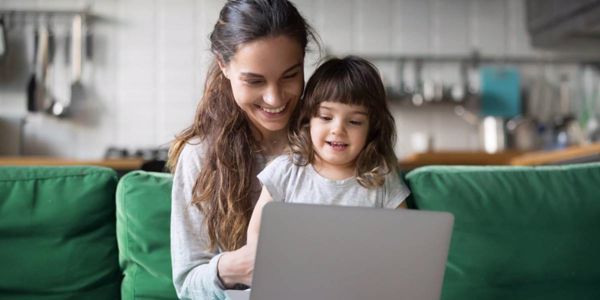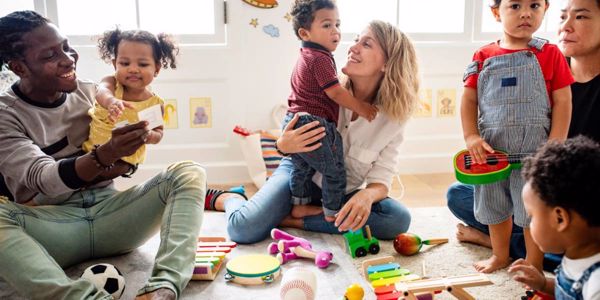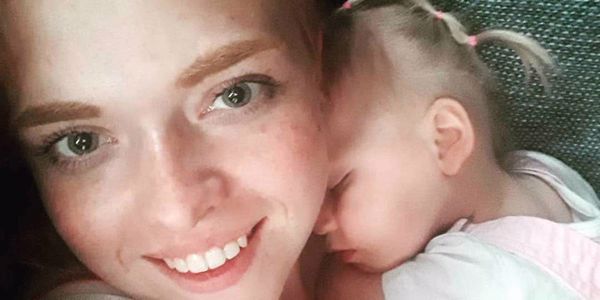More often than not, babies and toddlers get very clingy to one parent, or both and will start to cry if separated from them, even for a short time. This is particularly difficult when it comes to leaving your child with family for the day or starting nursery and preschool. As your baby develops, they start recognising faces but don’t learn object permanence until around 7-months. Essentially, they don’t realise that you still exist if they can’t see you. So, leaving the room can feel like you’re gone forever until they develop this understanding.
Sometimes, their confusion and anxiety about not being able to see you, or not recognising who they’re with, can go on for a few years, but it’s incredibly common and is something they usually grow out of.
As babies grow more aware of their surroundings, they will realise they don’t feel safe without their ‘protectors’ with them and makes them feel upset, resulting in lots of tears. This can include situations where you’re with someone new, for example, a preschool teacher, even if you’re there. This fear kicks in and so it’s important that you’re able to make it as positive a situation as possible, so they feel safe and secure either on their own in their cot or leaving them in day-care.
Dealing With It
We know how gut-wrenching it is to hear your child upset and the mothering instincts kick in and you just want to wrap your arms around them and tell them it’s okay. There are, however, some simple ways to make sure they will be okay when you’re not with them.
Mums can get separation anxiety too! It’s completely natural for you to feel anxious without your baby and them without you, so try not to feel guilty. It’s a sign of just how well you and your little one has bonded!
The key is to focus on positive reinforcement and helping your baby deal with their feelings and better understand them. They need to learn that they will be perfectly okay if you leave them or leave the room. By leaving your baby with another caregiver regularly, you won't mentally scar them. You'll be helping them learn to cope without you, which is an important step towards independence.
Your Baby Club and Center Parcs are giving you a chance to win a family break in a Woodland Lodge at a UK Center Parcs village of your choice.
Tips
Practise Being Separated For a Short Time
To start, you can leave them with a family member or friend, someone they know well, for a few minutes while you leave the room. Gradually work towards longer separations. The next step is to start leaving them in less familiar settings, such as a friend’s house. Again, starting off with short separations and working up to longer periods.
Tell Them What You’ll Do Together When You See Them Later
Talking about what you'll do together once you're back, is a good way to give them something to look forward to, as well as being given the reassurance that you are, in fact, coming back. For example, you could say: "When mummy picks you up later, we can go to the park! Doesn’t that sound like fun?"
Leave Them With Their Comforter or Something of Yours
It can be a great comfort to your baby to have something that they associate with you or something that brings them comfort - like something that smells like you, or their favourite toy or blankie. This can help reassure them while you are away.
Turn Saying ‘Goodbye’ Into a Positive
Leaving your baby is hard, even for 5 minutes, but despite what you feel, have a smile on your face, wave and say ‘see you later’ in a confident, happy tone. Saying goodbye sometimes has a negative effect, so ‘see you later’ can help them understand that you’re coming back.
External Support
Until babies can pick up on object permanence and trust that they will be safe wherever they are, whomever they’re with (excluding stranger danger of course) it's important not to let their anxiety prevent them from experiencing new things like having a sleepover at auntie's house, or spending a day making friends at nursery. It most certainly shouldn’t stop you from getting on with your life either and things you need to do, such as go to work or do a food shop without your baby.
If their separation anxiety doesn’t fade and is causing them a lot of distress and they don’t just snap out of it a few minutes after you’ve left, talk to your GP or paediatrician and they can help you with some techniques, or even some therapy to help you both take this important step towards their independence.






